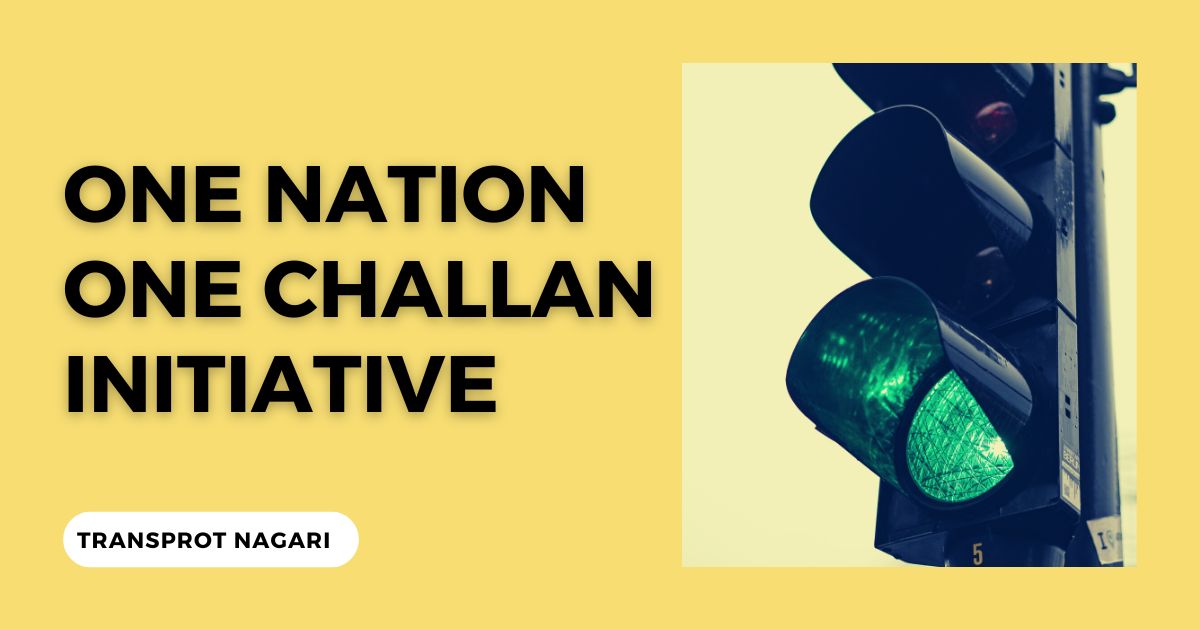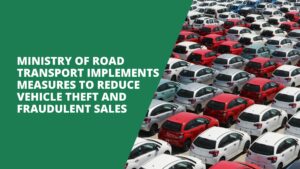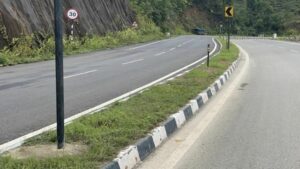One Nation One Challan Initiative by MoRTH

The One Nation One Challan initiative is an ambitious scheme launched by the Government of India to streamline the process of penalizing traffic offenders. The initiative aims to centralize the process of issuing traffic violation challans by integrating various databases and technologies, resulting in a more efficient and transparent system for enforcing penalties on traffic offenders.
In this article, we will discuss the various aspects of the One Nation One Challan initiative and its significance in promoting road safety in India.
What is One Nation One Challan?
The One Nation One Challan initiative is a visionary project by the Ministry of Road Transport and Highways that seeks to create a unified platform for all agencies involved in traffic regulation, including traffic police and the Regional Transport Office (RTO).
This platform enables the seamless collection of challans and data transfer, simplifying the process of traffic fine collection and enhancing road safety across the country.
How does One Nation One Challan System Work?
The One Nation One Challan system is a sophisticated approach to manage traffic violations in India. The system works by utilizing CCTV cameras to detect traffic violations, which then capture the registration number of the offending vehicle. The information obtained from the cameras is then cross-referenced with databases like VAHAN, which contain the vehicle’s ownership details, and SARATHI, which contains driver’s licence data.
Once the violation is confirmed, an e-challan is generated with the relevant penalty amount and sent to the registered mobile number of the vehicle owner. This ensures that vehicle owners are notified of any traffic violations and are required to pay the penalty amount promptly.
The system is designed to ensure compliance with traffic regulations and encourage safe driving habits. It is also essential to note that failure to pay the challan amount within 90 days will result in the challan being forwarded to a virtual court, and legal proceedings will be initiated. This means that vehicle owners who refuse to pay their fines will face legal consequences.
Benefits of One Nation One Challan (ONOC) Scheme
The One Nation One Challan (ONOC) scheme in India aims to promote road safety, reduce corruption, encourage compliance with traffic rules and regulations, and improve revenue collection. In this section, we will elaborate on the advantages of the scheme:
- Efficient Traffic Management: The One Nation One Challan (ONOC) scheme utilizes advanced technology like CCTV cameras and databases to detect traffic violations and issue e-challans. This helps in efficient traffic management by ensuring that offenders are caught and penalized quickly, which reduces the likelihood of traffic jams and accidents.
- Reduced Corruption: The ONOC scheme will significantly reduce corruption in the traffic police department. With e-challans, there will be no scope for bribes or under-the-table payments, as everything will be recorded and tracked digitally.
- Convenience for Vehicle Owners: The ONOC scheme offers convenience to vehicle owners by enabling them to pay their challans online using various payment modes. This saves time and effort as they don’t have to physically go to the traffic police station to pay the challan.
- Encourages Compliance: The ONOC scheme encourages compliance with traffic rules and regulations. Knowing that their violations will be detected, and they will be penalized, vehicle owners are more likely to adhere to traffic rules, which leads to safer roads and reduced accidents.
- Transparency: The ONOC scheme ensures transparency in the entire process of issuing and paying e-challans. Vehicle owners receive the challan details and penalty amount on their mobile phones, making the entire process transparent and trackable.
- Centralized Database: The ONOC scheme maintains a centralized database of all traffic violations, which makes it easier to track repeat offenders and enforce penalties more efficiently across country.
- Reduced Legal Proceedings: The ONOC scheme will significantly reduce the number of legal proceedings related to traffic violations. With e-challans and prompt penalty payments, legal cases will be avoided, and offenders will be penalized without delay.
- Promotes Road Safety: The ONOC scheme promotes road safety by encouraging safe driving practices and ensuring that offenders are held accountable for their actions. It also reduces the likelihood of accidents caused by reckless driving and traffic violations.
- Better Revenue Collection: The ONOC scheme will improve revenue collection for the government. With digital payments and a streamlined process, the collection of fines will become more efficient, leading to better revenue generation for the government.
Role of Virtual Courts in One Nation One Challan Initiative
In the One Nation One Challan initiative, virtual courts play a crucial role in the process of penalizing traffic offenders. The main aim of virtual courts is to eliminate the need for litigants to physically appear in court. Offenders can search their case on the virtual court’s website, and upon successful payment of the fine, the case will be marked as disposed of.
If someone fails to pay the challan amount within 90 days, the challan will be automatically forwarded to a virtual court. The offender will receive a summons on their mobile phone, and if the fine is still not paid, further legal proceedings will follow.
Significance of Vahan & Sarathi in One Nation One Challan
Vahan and Sarathi will play a crucial role in the One Nation One Challan initiative by detecting traffic violations and generating e-challans with relevant penalty amounts. Vahan detects the ownership details of a vehicle involved in a traffic violation, while Sarathi compiles driving licence information.
The integration of these applications will result in a centralized database of all violations, enabling easy tracking of repeat offenders and efficient penalty enforcement.





